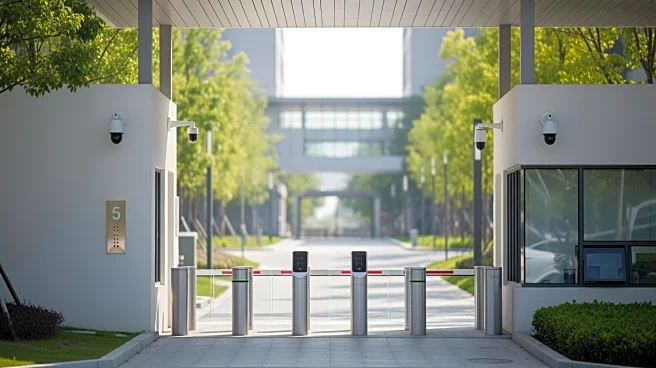What's Happening?
Higher education institutions are increasingly adopting advanced physical security technologies to enhance campus safety. These technologies include biometric authentication systems, environmental sensors, and face recognition. While these tools offer
significant security benefits, such as improved access control and incident investigation capabilities, they also pose privacy risks and administrative challenges. Institutions must navigate local privacy laws and establish clear policies to responsibly deploy these technologies. Strategies include limiting data collection, setting retention periods for video footage, and using video redaction technology to protect privacy. The deployment of these technologies requires collaboration with technology partners who understand regional regulations and institutional goals.
Why It's Important?
The integration of advanced security technologies in higher education is crucial for ensuring the safety and well-being of students, faculty, and staff. These technologies can quickly identify intruders and control access to sensitive areas, thereby preventing potential security breaches. However, the use of biometric data and face recognition raises privacy concerns, necessitating careful policy development to protect individual rights. Institutions that successfully balance security and privacy will be better positioned to safeguard their communities while complying with legal requirements. This balance is essential as state and local legislation continue to evolve in response to technological advancements.
What's Next?
Higher education institutions are expected to continue refining their security policies to address privacy concerns while leveraging the benefits of advanced technologies. Collaboration with technology partners will be crucial in navigating regulatory constraints and achieving desired security outcomes. Institutions may also explore alternative technologies, such as similarity search, which offer security benefits without storing biometric data. As legislation catches up with technological advancements, institutions will need to adapt their strategies to remain compliant and effective in protecting their campuses.
Beyond the Headlines
The deployment of physical security technologies in higher education highlights broader ethical and legal implications. Institutions must consider the impact of surveillance on campus culture and the potential for misuse of collected data. The balance between security and privacy reflects a larger societal debate on the role of technology in public spaces. As these technologies become more ingrained in campus security, institutions will need to address concerns about data ownership, consent, and transparency to maintain trust within their communities.

















